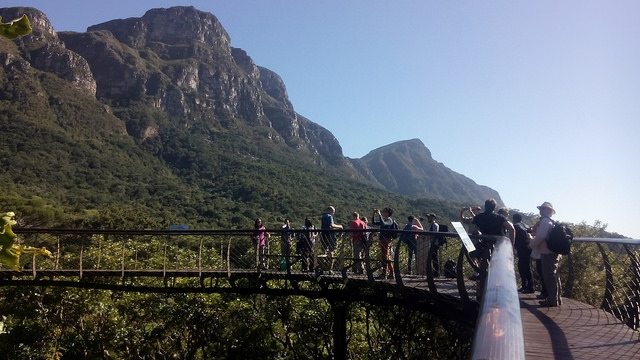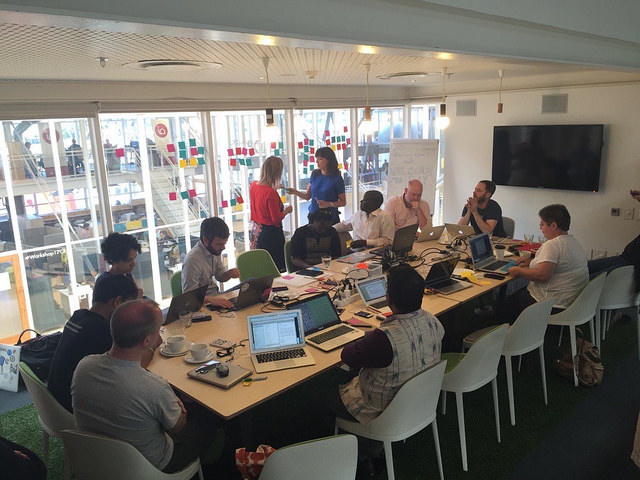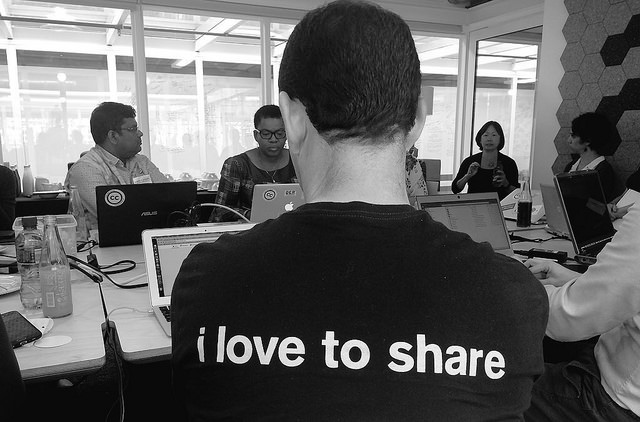Reporting back on the Institute for Open Leadership 2
Open ScienceFELLOWS’ UPDATES:
- Alessando Sarretta: Open Practices and Policies for Research Data in the Marine Community
- Jane Frances-Agbu: Pondering the Future of Open Education in Nigeria
- Roshan Kumar Karn: Building an Institutional Open Access Policy In Nepal
- Fiona MacAlister: Cultivating a Culture of Knowledge Sharing
- Juliana Monteiro: Creative Commons and Museu da Imigração: notes on a Brazilian experience
- Katja Mayer: Open Innovation and the Creation of Commons
- Amanda Coolidge: Developing Open Policy for Higher Education
 The Centenary Tree Canopy Walkway by Alessandro Sarretta, CC BY
The Centenary Tree Canopy Walkway by Alessandro Sarretta, CC BY
Last week Creative Commons hosted the second Institute for Open Leadership. The Institute is a training and peer-to-peer learning opportunity that brings together up-and-coming leaders to develop and implement an open licensing policy in their institution, province or nation. We were thrilled to welcome a diverse group of fellows from 14 countries to Cape Town, South Africa.
- Jane-Frances Agbu – National Open University of Nigeria – Nigeria
- Rim Azib – British Council, Tunis – Tunisia
- Steve Cairns – Greenpeace International – Netherlands
- Amanda Coolidge – BCcampus – Canada
- Daniel DeMarte – Tidewater Community College – United States
- Paula Eskett – CORE Education – New Zealand
- Mostafa Azad Kamal – Bangladesh Open University – Bangladesh
Roshan Kumar Karn – Tribhuvan University Teaching Hospital – Nepal - Vincent Kizza – Open Learning Exchange Uganda – Uganda
- Fiona MacAllister – University of the Witwatersrand – South Africa
- Katja Mayer – University of Vienna – Austria
- Caroline Mbogo – The World Agroforestry Centre – Kenya
- Niall McNulty – Cambridge University Press – South Africa
- Juliana Monteiro – Museu da Imigração do Estado de São Paulo – Brazil
- Alessandro Sarretta – Institute of Marine Sciences – Italy
In addition to the fellows, we invited seven mentors with open policy expertise from various open sectors. We even brought back two IOL #1 fellows (Klaudia Grabowska and David Ernst) to be mentors at this year’s Institute.
Prior to arriving in Cape Town, all of the fellows proposed an open policy project, which they then developed with their mentors and other fellows during the week. A natural focus for the week was understanding open licensing and the potential for open policies to expand public access to knowledge, data, culture, and research around the world. But licensing is not the only component to a successful open policy adoption. Much of the week involved hearing how openness is perceived within different sectors and institutions, and coming up with strategies and tactics for addressing the important social, cultural, and technological challenges to open policy adoption.
 IOL2 session by Kelsey, CC BY
IOL2 session by Kelsey, CC BY
In addition to learning and working with the mentors and other fellows, there were several interesting speakers that came to talk with the group, including Adam Haupt and Caroline Ncube from the University of Cape Town, Mark Horner from Siyavula, Ralph Borland with Africa Robots, and Barbara Chow, TJ Bliss, and Dana Schmidt from the Hewlett Foundation.
Over the coming months, the Institute fellows will share regular updates here about their projects, including the progress they are making in implementing open licensing policies within their institutions and governments.
Thank you to Paul Stacey and Kelsey Wiens—who helped facilitate the week-long workshop—and to Kelsey in particular, who helped arrange all the logistics for the meeting in Cape Town. We also appreciate the assistance from the Open Policy Network and the ongoing support from the William and Flora Hewlett and the Open Society Foundations in making the Institute for Open Leadership possible.
 IOL2 fellows and mentors by Kelsey, CC BY
IOL2 fellows and mentors by Kelsey, CC BY